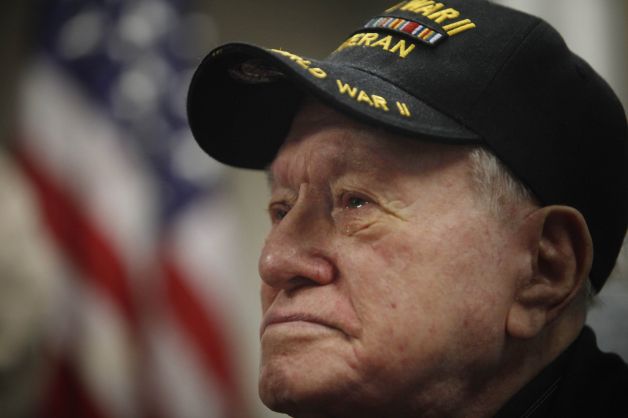In 1945, John Brenan was sent on a reconnaissance mission in Hiroshima, to search if there were any enemy left, but all there was left there after the American atomic attack was the radiation. Forty years later his doctors would confirm that radiation was the reason he developed colon cancer. He was able win the fight with the disease, but not with the U.S. Department of Veterans Affairs, after sending off a disability claim.
Rep. Jackie Speier, D-Hillsborough explained the 90-year-old vet that she understands how annoying this whole situation might have been for him but it also means that the U.S. Department of Veterans Affairs is finally showing some progress regarding the clearing of all infamous backlog of claims.
She continued saying these kind of situations should never exist and that they are intensively working on making sure it will not happen again. John was sat in a walker-chair, next to her and wearing a Second World War vet’s cap on his head. Jackie Speier said his claim was denied and that many mistakes were made but the only reason he was able to get his benefits was because he wouldn’t give up.
The old man admitted on feeling very well and happy at the VA Palo Alto hospital, however, he couldn’t understand why it took so long for his monthly payments to start coming in so he can move back to his house in Millbrae, where he now lives with his daughter, who takes care of him, the SFGate reports.
He remembered the time he went to Hiroshima saying he didn’t have a clue about the danger of the radiation at the time. He also has one picture of himself in Hiroshima, drinking from a Japanese bowl containing water he’d just pulled from a well. Most likely the water had already been contaminated by the radiation from the bomb which took over 80,000 lives.
With tears in his eyes, Brenan said he hopes his case will help and will make things a lot easier for many of his fellow vets and other soldiers.
He first filled in a disability claim in 1989, when he was already suffering from colon cancer and was in the process of being treated. However, his application was denied because the U.S. Department of Veterans Affairs did not cover that type of cancer for Second World War vets at the time. He tried to do it again in the 1990, but again, it wasn’t successful.
“With bravery and perseverance,” Speier said, “wrongs can be righted.”
